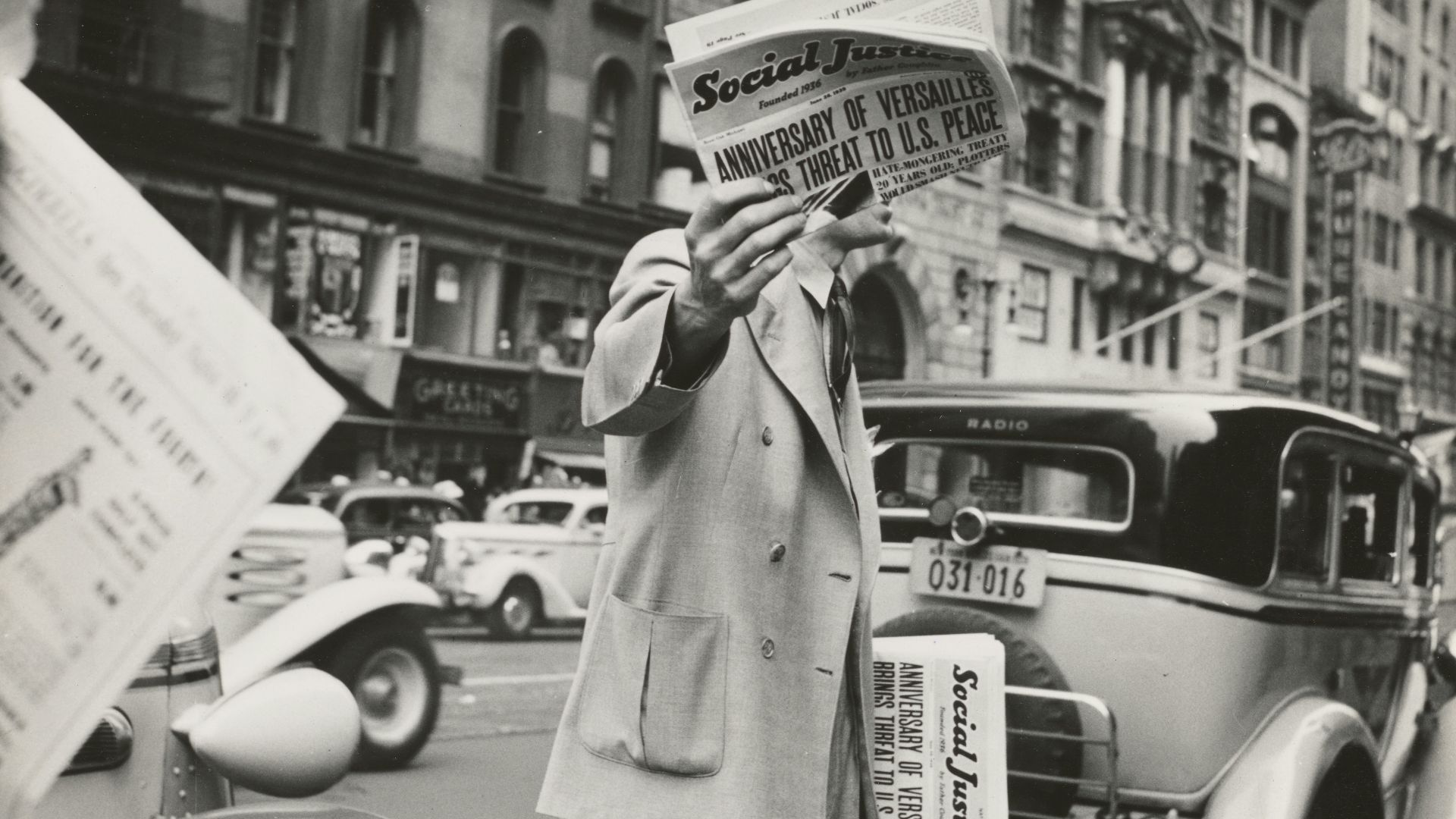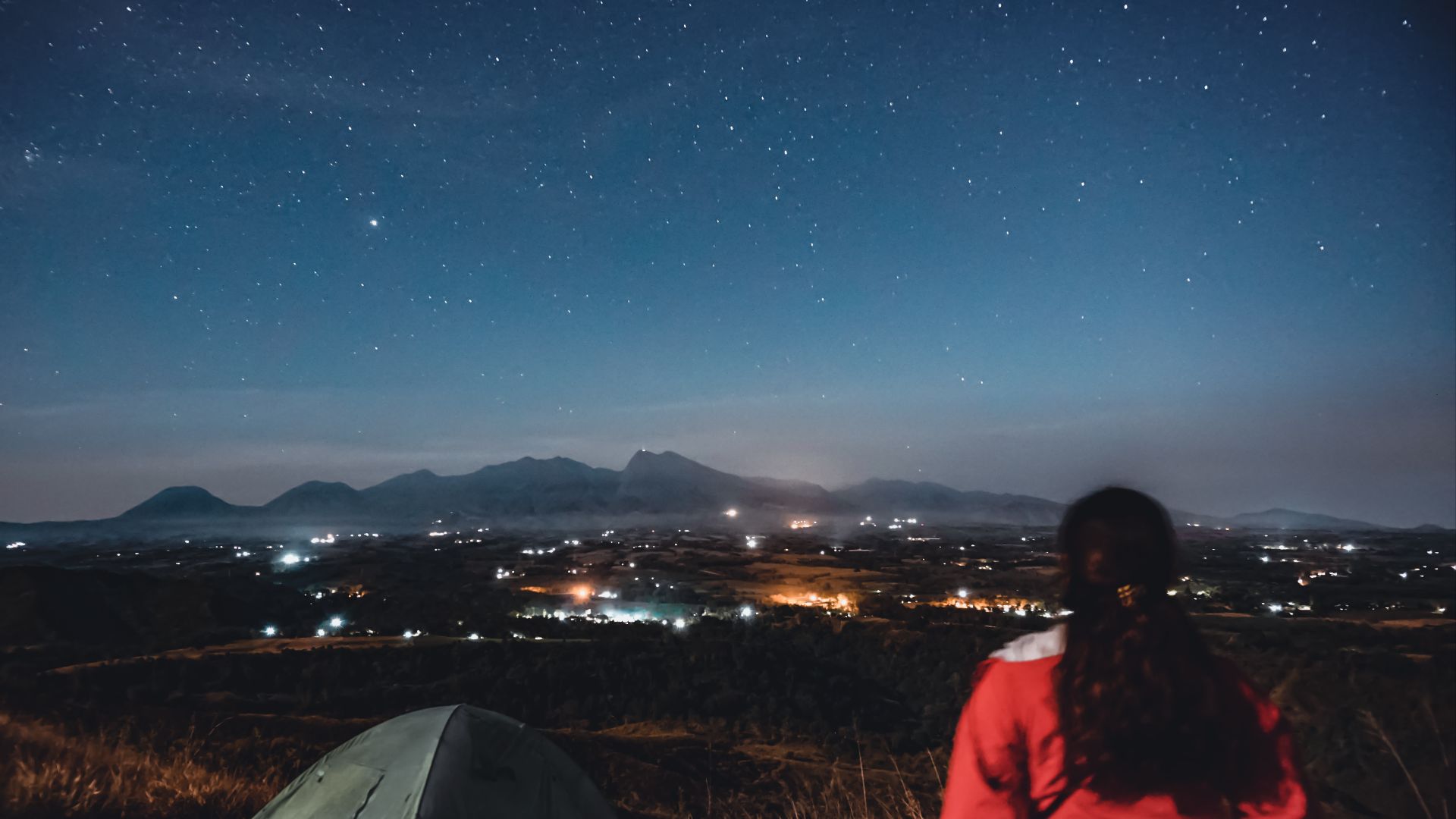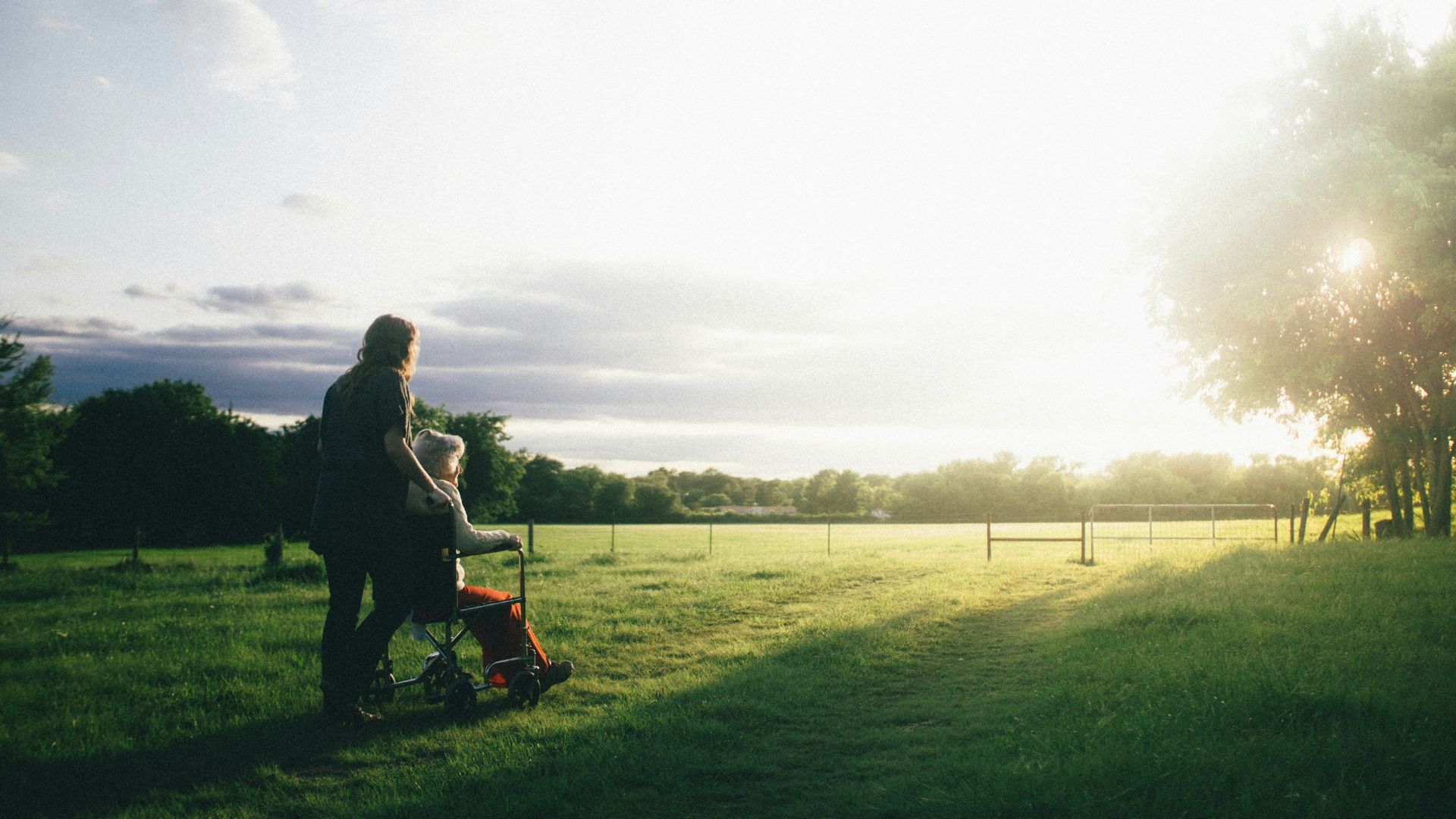Don't Worry—There's a Word for What You're Feeling
Despite the vastness of the English vocabulary, there are only so many ways to describe our experiences. That's probably why we often turn to other languages—like German, French, or Japanese—in search of words that can explain more peculiar emotions. It was this very frustration that prompted American author John Koenig to coin neologisms to help us better define everyday life. Drawn from his book, The Dictionary of Obscure Sorrows, here are 20 words for those intense, intricate feelings you've experienced but never had a name for—until now.
1. Sonder
Perhaps the most well-known word from Koenig is sonder, which is the realization that everyone is the main character in their own life. The people you walk past day to day without so much sparing a second glance, the people you only meet once or twice, the people you only hear about on the internet—all of them have a life just as complex as your own.
2. Énouement
Énouement is the bittersweetness of having arrived in the future where you have the answers your past self would have wanted to know, but being unable to go back in time and tell that younger version of yourself how life turned out. Maybe you're wondering at this moment what would happen if you lost touch with your best friends, or if you'll still remain as close to all the people you love now—but you won't know until the future comes, and the future-you can't come back to report how things went.
3. Onism
Have you ever had the realization that there's only so much of the world you'll ever get to experience? That's onism—the awareness that you're limited to one body and can only be in one single place at any given time. The best you can do is stare out at the lights dotting the edge of the horizon and wonder what it's like to be out there.
4. Kenopsia
Kenopsia is the strange, forlorn scene and atmosphere of a place that's usually busy and crowded, but now sits abandoned. You can use this term to describe unlit office buildings on a weekend, a shopping mall that's closed for the night, or a vacant school hallway during after-hours.
5. Nodus Tollens
When you were younger, you might have daydreamed about how your life would pan out. The things you'll do, the people you'll meet, the career you'll have. Now that you're older, you might sometimes be able to make out the roads that led you to where you are today, but other times, you have no idea how you ended up here. That's nodus tollens—when you no longer understand the plot or genre of your story, but ultimately realize that you're in control of how it all plays out.
6. Ellipsism
Inspired by the word "ellipsis," which is the omission of words you don't get to see, ellipsism is the sadness of knowing you'll never learn how history or the future will turn out. You might look forward to upcoming events, only to worry you might not be present to even experience it.
7. Zenosyne
Isn't it crazy how fast time flies? Most days feel like they pass by in a blink. Zenosyne describes that exact feeling—when you're acutely aware of just how fast the years speed by, especially as you get older, and find yourself trying to hold on and catch your breath but never getting the chance.
8. Anemoia
When you're reading about an event or a period in history that happened before you were born and feel a sense of nostalgia for it, wishing you were there to experience it, that's anemoia. You might wonder about what it'd be like to live in a certain era, in the shoes of another person, even if just for a day.
 The New York Public Library on Unsplash
The New York Public Library on Unsplash
9. Lachesism
Lachesism is the morbid desire to experience—and survive—something disastrous, such as plummeting down a waterfall or escaping a plane crash. While twisted, it stems from the thought that living through these dangerous encounters could potentially lend better clarity and appreciation of life.
10. Monachopsis
If you don't do well in social situations and functions, monachopsis might be a feeling you're awfully familiar with: the sense that you don't belong and don't fit into your surroundings. For example, you might feel out of place in a group of strangers your friend just introduced you to, or at a new workplace.
11. Maru Mori
Maru mori is defined by Koenig as the "heartbreaking simplicity of ordinary things." Sure, oftentimes it's the grand things that stand out to us most, but the everyday happenings—an afternoon stroll around the park, the songs we hum in the shower, the sound of laughter—are just as worthy of commemorating.
12. Dès Vu
You've likely experienced déjà vu at least once in your life, which is the feeling that something has already happened. Dès vu—French for "seen as of now"—has a similar but opposite meaning: the awareness that the current moment you're experiencing will become a memory. In some ways, it's a reminder that every scene is precious in its own light.
13. Yu Yi
Remember the days of your childhood, when the world still felt big and unknown and unexplored? When you were excited about the simplest things, like the last day of school before summer break, the morning before a field trip, the rush of speeding down a slide. Taken from Ancient Chinese (meaning "I remember"), yu yi is the desire to feel intensely again, as you did when you were young.
14. Ambedo
Sometimes it's not the thrill of life that reminds us we're alive and breathing, but the tiny details that momentarily capture our attention, even if just for a little while. Ambedo is a sort of wistful reverie, when you become absorbed in the small, mundane things, such as the raindrops on the window of a moving car, or the steam rising from your morning coffee.
15. Midding
Picture this: your friends are at the front of the car chatting over the song on the radio, so momentarily immersed in their conversation. You're in it, too—and free to jump in whenever—but you take comfort in knowing that you're included even without being in the center of it. That's midding—the solace of having everyone together and aware that you're a part of it all, even if you're just hovering at the edges.
16. Kairoclerosis
Sometimes you find yourself in a moment where you feel a rush of happiness, an overload of dopamine, and you might suddenly have the urge to savor it, pick out every detail that's contributing to the feeling before it fades. That's kairoclerosis, pieced together from Ancient Greek where kairos means "an opportune time" and sklḗrōsis means "hardening."
17. Trumspringa
Have you ever felt a random desire to drop the life you know of and pursue something completely different, whether adventurous or mundane? You might be experiencing trumspringa. Maybe a burst of change is all you need, no matter how long or brief, before you eventually find your way back home.
18. Exulansis
Exulansis is the frustration of not being able to fully explain an experience that others haven't felt, which makes you give up telling the story altogether. The kind of emotion that rocked through you during a treacherous hike in a foreign mountain range, for example, is something no one else can truly understand unless they were right there with you.
19. Ozurie
Ozurie, in a way, is like feeling trapped: you wish your life went one way but you're stuck with the one you're currently living through. Your mind is in a constant tug-of-war: should you quit your job and pursue a different path or should you stay? Should you stick with your partner or is there someone better out there? Perhaps you won't ever know until life unfolds itself one way or the other.
20. Jouska
At night before bed, you have a conversation with yourself in your head. Maybe you're rehearsing for an upcoming presentation, playing both the part of the audience and as the presenter. Maybe you're fantasizing about how you'll finally propose to the love of your life. Whatever hypothetical discourse your mind has conjured up for the time being, that's jouska.



























